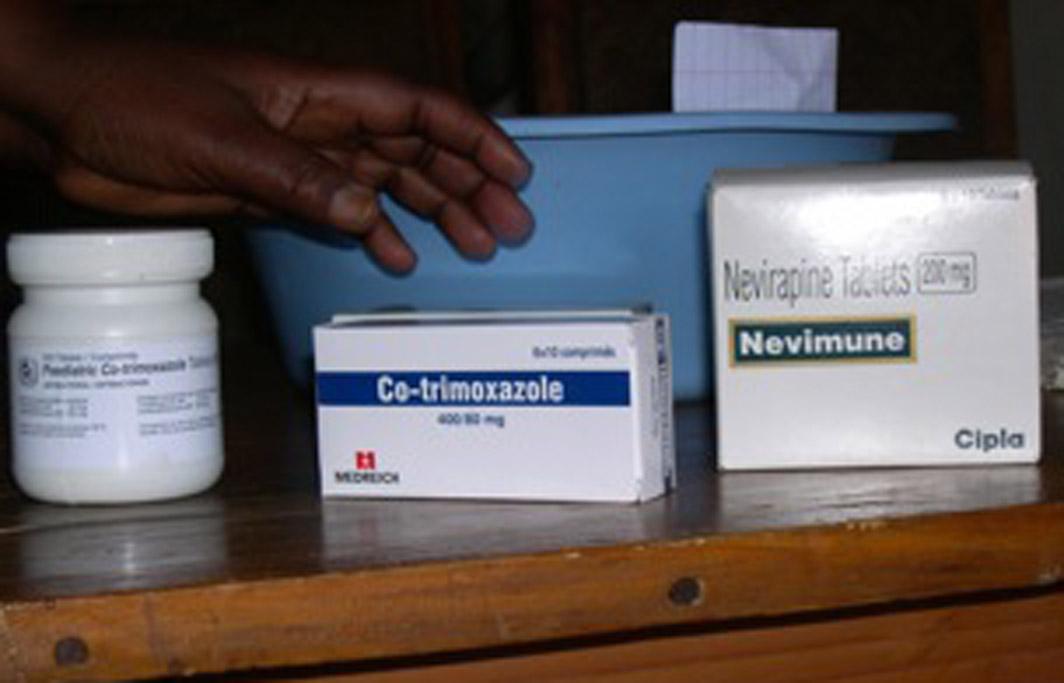Political tensions threaten HIV program in Malawi
HIV/AIDS drugs at Salima District Hospital, Malawi.
This is a guest blog by Janet Fleischman, a senior associate at the CSIS Global Health Policy Center. She recently returned from a visit to Malawi.
CSIS’ Global Health Policy Center (GHPC) is a leading policy research institution focused on building bipartisan awareness about global health and its importance to U.S. national security.
The growing political and economic crisis in Malawi, highlighted by the government’s use of force against peaceful demonstrators last week, could also imperil the groundbreaking expansion of Malawi’s national HIV/AIDS program.
It is not clear what impact these events will have on the relationship between the government of Malawi and its key international donors, including the U.S. and the U.K., which recently suspended some of their funding to Malawi in response to the crisis. What is clear is that Malawi cannot hope to achieve its new HIV/AIDS targets without significant international support, and its actions in suppressing civil society may be putting that support in jeopardy.
Last year, the Malawian government announced plans to launch a “test and treat” program in which all HIV-infected pregnant women will immediately be put on anti-retroviral treatment (ART) drugs for life. This is an ambitious approach to HIV/AIDS treatment, and presents an alternative response to the World Health Organization’s (WHO) guidelines. In 2010, WHO recognized the importance of starting treatment earlier, based on the patient’s CD4 cell count, which is a sign of AIDS severity.
(More from GlobalPost: U.S. suspends AID to Malawi)
In countries with weak health systems such as Malawi, however, waiting until CD4 testing is widely available throughout the country could mean delaying national ART roll out indefinitely. Given Malawi’s severe resource constraints and the limited availability of CD4 machines, the government decided not to make a CD4 count a prerequisite to treatment. Instead, they pursued a public health approach — a simplified treatment regimen and associated training for health care providers. The program would initially target HIV-infected pregnant women both to prevent mother-to-child-transmission and to put the mother on treatment for life.
However, for this plan to work, it will require retraining some two-thirds of Malawi’s healthcare workers and more than doubling the number of ART sites from less than 300 to over 700. By December 2011, Malawi is aiming for 3,000 service providers to be trained and for 740 facilities to be able to initiate ART. For Malawi, this strategy may prove to be a more feasible way to decrease mother-to-child transmission and to increase HIV-infected women’s access to treatment.
The implementation of Malawi’s new strategy faces many challenges, particularly related to how the country will finance the new ART program and what type of counseling and social support will be provided to the women who are being placed on ART for life. Yet the new approach also presents opportunities to address HIV/AIDS in Malawi, including expanding access to AIDS treatment throughout the country and enhancing effective integration of family planning and reproductive health services into HIV/AIDS care for these HIV-infected women.
As one U.S. health program analyst in Malawi put it, “Using this approach will in effect bypass the system challenges and allow HIV-positive pregnant women in even the most remote clinics to be provided with the best option for preventing transmission to her baby; that’s the genius and the controversy of test and treat.” Overcoming such system challenges is difficult under even the best of circumstances and it remains to be seen whether Malawi will be successful in achieving its ambitious treatment goals. However, those challenges will be made only more acute if the government pursues the kind of violence and crackdowns on civil society that put its international support at risk.
